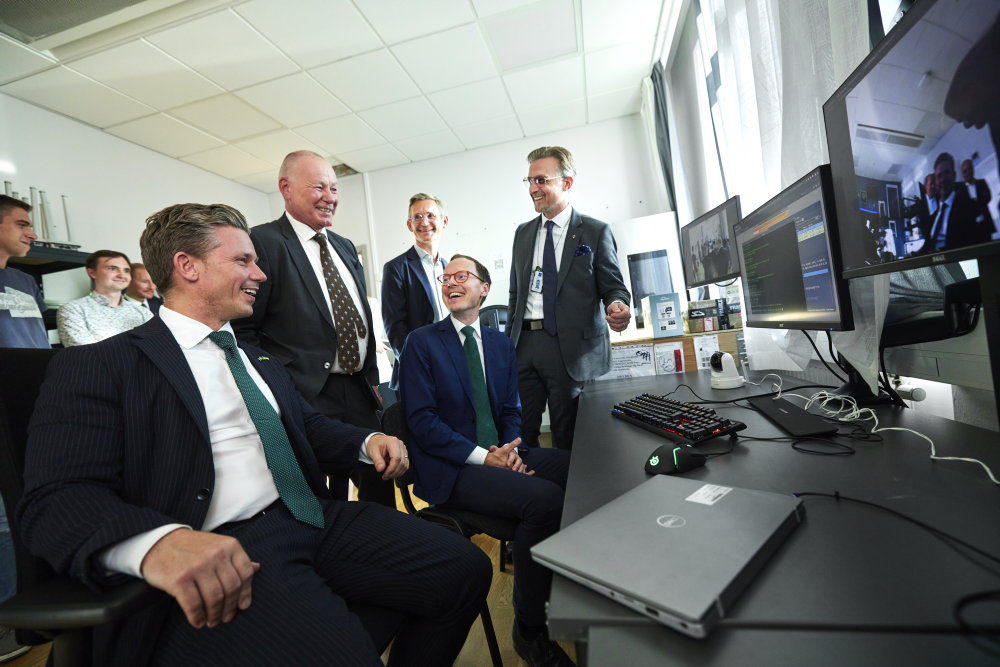KTH to play key role in Sweden’s Cybercampus

KTH Royal Institute of Technology is to play a central role in developing cyber defense education and research, under the budget proposal announced yesterday for a new Cybercampus Sweden. (Photo: Fredrik Persson)
Defense Minister Pål Jonson and Education Minister Mats Persson appeared at KTH yesterday to unveil the government’s proposal to invest 25 million Swedish crowns in 2024 to establish Cybercampus Sweden, and to provide further funding of 40 million Swedish crowns each year through 2026.
The announcement was made at KTH’s Centre for Cyber Defence and Information Security, which was founded in 2020 as a collaboration between KTH and Sweden’s Armed Forces. Since 2020, the Swedish Defence Research Agency (FOI), the National Defence Radio Establishment (FRA), the Swedish Defence University and the Swedish Civil Contingencies Agency (MSB) have also joined CDIS.
CDIS will now become part of Cybercampus Sweden, which will aim at strengthening research, education and innovation in the nation’s cyber defense, through collaboration between the country’s universities, public agencies, businesses and research institutes.
"This is a necessary investment considering the current security situation and the state of the world today. KTH is the hub for this initiative, and there is unique expertise here," Persson says.
"It's a huge, important, and certainly exciting initiative,” says Anders Söderholm, president of KTH. “The investment is very timely, and together, in a broad partnership and collaboration, we aim to make society more robust and secure. Both our educational and research environments will play a crucial role in this effort.”
The idea of a cyber campus has been in development for a couple of years, originally initiated by KTH, the research institute RISE, and the Swedish Armed Forces. Through a Vinnova initiative, an interim center has been established with even more stakeholders, including MSB, Karlstad University, Ericsson, and Saab.
"We've been working on this for two years, and now we can enter an operational phase," says David Olgart, who will serve as director of Cybercampus Sweden.
Pontus Johnson, a professor of network and systems engineering and director of CDIS at KTH, emphasized that the world is filled with vulnerabilities in our various systems. He stressed the importance of research, innovation, and long-term solutions to better secure and defend systems against attacks.
"This investment is absolutely critical for Swedish cybersecurity and for us to secure the supply of competence, to conduct research and to innovate in the long run," he said.
During the ministers’ visit, Jonson and Persson were given a demonstration of how quickly and easily it can be to hack into someone's computer by some of KTH's students.
Jill Klackenberg/David Callahan
